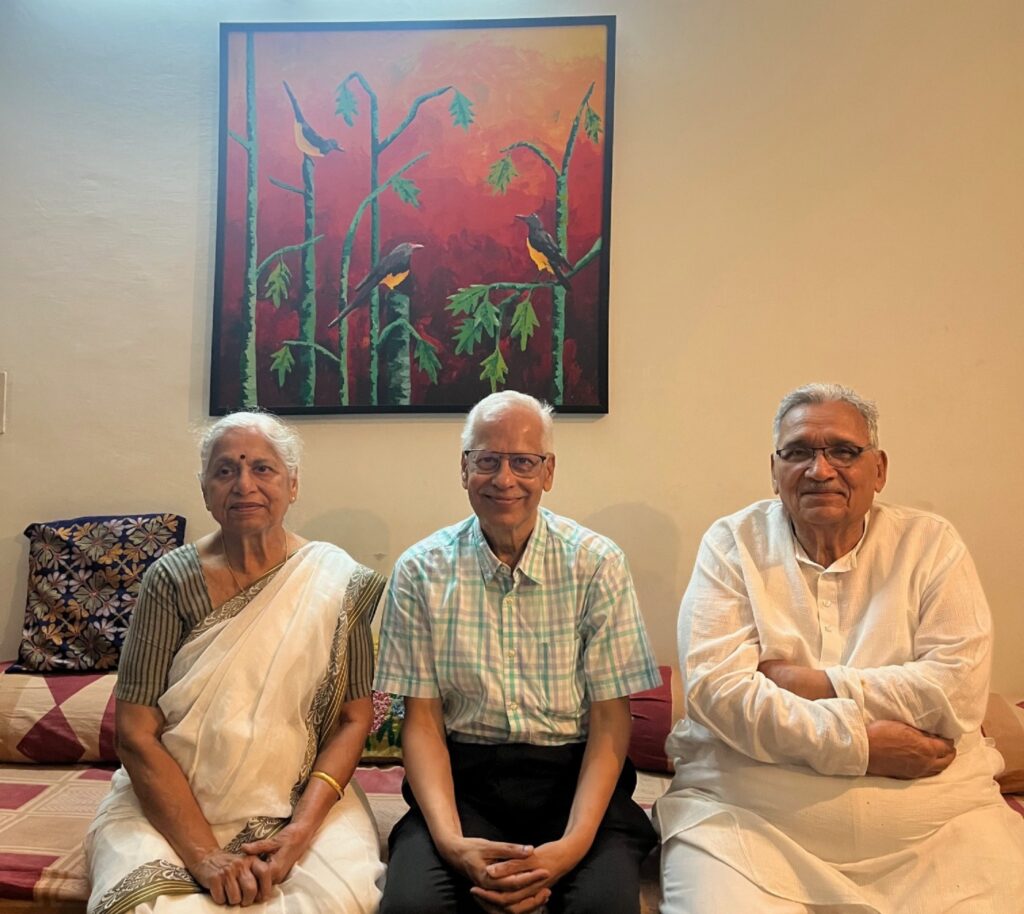Exactly a week ago, I landed in Indore to visit my elder sister. But my heart tugged in another direction—toward someone I had to see.
Dr. Karunakar Trivedi.
That morning, I dialed his number. His voice, gentle and warm, hadn’t changed with time. He welcomed me without pause. By noon, I was standing before Trivedi Parisar—a quiet haven on Bholanath Ustad Marg nestled amid the cacophony of Indore’s coaching hubs, where young minds chase IIT and IIM dreams.

The moment I stepped in, the world outside receded.
There he was—Dr. Trivedi—in his familiar white kurta-pyjama, opening the door with that unmistakable smile. I bent to touch his feet. Overhead, Indore’s skies brooded. Dark clouds hovered. Rain threatened.
And then it came—unannounced and unrelenting.
For the next ninety minutes, monsoon rain drummed the windows. Yet inside, we sat dry—and soaked in remembrance. He spoke of Sevagram, of the 1970s and early 1980s, of those golden years when he, and Mrudula, his wife, led Surgery and Gynaecology. When he wore many hats, including that of Medical Superintendent of Kasturba Hospital—juggling wards, wheels, and responsibilities.
I listened—eyes wide, heart full.
He walked through the decades as though strolling through familiar rooms. The stories flowed—never tinged with bitterness or regret. Only pride. Quiet, dignified pride. Stories comprised of commitments. And packed with passion.
He remembered everything.
The Adhyayan Mandir. The Guru Nanak Colony. The operating theatres. The surgery wards and the OPD. The MS office. The outreach camps he led. The cardiac surgeries he performed. Rambhau Ugale, the technician. Mausi, the staff nurse. And Dr. Anant Ranade, the opthalmologist.
And then, the year 1982.
The infamous strike. The residents. A time etched in memory—bittersweet, complex. A chapter filled with turmoil and resolve, heavy with meaning even now.
When he left Sevagram, he said, his family wept as their train pulled away from Wardha station. He hadn’t wanted to leave. But life, with its unpredictable hand, led him elsewhere. Circumstances demanded it. And he moved on.
Now in their mid-80s, the Trivedis live alone—but on their own terms. Their days are quieter now, but they carry the fullness of a life built with care: students mentored, surgeons trained, a hospital shaped. A legacy etched in time.
I took their leave. They stood by the door, waving gently.
As I got into the car to return to my sister’s home, the rain still poured—just as it had from the moment I arrived at Trivedi Parisar. For an hour and a half, the monsoon had drummed ceaselessly on the roof, as if echoing the flood of memories within.
Outside, the street was ankle-deep in water, every puddle a mirror of the past. The windshield wipers swept away the rain, but not the mist in my eyes.